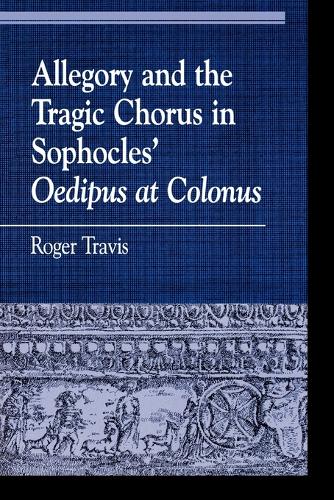
Allegory and the Tragic Chorus in Sophocles' Oedipus at Colonus
(Paperback)
Publishing Details
Allegory and the Tragic Chorus in Sophocles' Oedipus at Colonus
By (Author) Roger Travis
Bloomsbury Publishing PLC
Rowman & Littlefield Publishers
3rd June 1999
United States
Classifications
Tertiary Education
Non Fiction
Literary studies: ancient, classical and medieval
882.01
Physical Properties
Paperback
256
Width 150mm, Height 228mm, Spine 14mm
345g
Description
In this book, Roger Travis brings together poetics and psychology to study the tragic chorus in Sophocles' Oedipus at Colonus. Beginning from Quintilian's definition of allegory as extended metaphor, Travis argues that in Oedipus at Colonus the chorus of old men forms an allegorical relationship with the aged Oedipus, which depends in turn upon the chorus's own likeness to the Athenian audience. The play relates Oedipus allegorically to the audience through the tragic chorus and transforms Oedipus' relation to the body of his mother Jocasta into a new relation to the land of Attica. Corresponding readings of Aeschylus' Suppliants and Euripides' Bacchea further explore the chorus's role in expressing the relation of the individual to the maternal body. Employing a flexible combination of Lacanian and object-relations psychoanalytic theory, Travis investigates the tragic text's conception of the problems of human existence. The introduction provides a useful survey of the advantages and disadvantages of various psychological approaches to tragedy, making this an important volume for students and scholars alike.
Reviews
Travis pursues this quasi-psychoanalytic reading of the Oedipal allegory in a rigorous and uncompromising way. * Religious Studies Review *
Author Bio
Roger Travis is assistant professor of Classics at the University of Connecticut.
